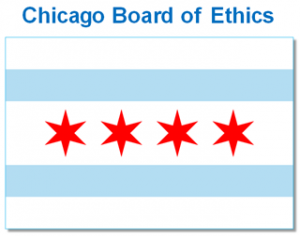April 1, 2014 •
Federal Court Enjoins Delaware Reporting Requirement
The United States District Court for the District of Delaware granted a preliminary injunction sought by Delaware Strong Families, who challenged a new Delaware campaign finance law requiring sponsors of third-party advertisements to disclose the identities of their donors. Specifically, […]

The United States District Court for the District of Delaware granted a preliminary injunction sought by Delaware Strong Families, who challenged a new Delaware campaign finance law requiring sponsors of third-party advertisements to disclose the identities of their donors.
Specifically, Section 8031 of the Delaware Election Disclosures Act, which became effective January 1, 2012, requires any person who makes an expenditure for a third-party advertisement exceeding $500 during an election period to file a report with the Elections Commission, including the names and addresses of each person who has made contributions to the sponsor of the third-party advertisements exceeding $100.
Delaware Strong Families alleged such donor disclosure requirement was overbroad and therefore unconstitutional. The District Court agreed and enjoined further enforcement of this reporting requirement, noting that the Act is so broadly worded as to include virtually every communication made during an election period, no matter how indirect and unrelated it is to the electoral process.
April 1, 2014 •
Our April Photo Scrapbook
![Enjoying the National Governors Association [NGA] Winter Meeting in Washington, D.C. are Elizabeth Z. Bartz and Brian S. Rosen from Purdue Pharma.](http://stateandfed.com/wp-content/uploads/2014/04/photo-3b.jpg)
![Elizabeth and Katrina Iserman from Sunovion Pharmaceuticals attending the Democratic Governor's Association [DGA] reception at Mayflower Hotel during NGA Winter Meeting in Washington, D.C.](http://stateandfed.com/wp-content/uploads/2014/04/DGA-Katrina-Iserman-with-EB-1.jpg)
![State and Federal Communications, Inc. attended the UNANET Champion Conference in Tysons Corner, VA. The UNANET software will allow us to reduce the time spent on timesheet processing and will provide us with a quick turn-around for billing. We are always interested in better use of our time. Here [from left to right] are Renold Koozer, Executive Director; Mark Sedmock, Comptroller; and Dave McPeek, IT Business and Operations Analyst.](http://stateandfed.com/wp-content/uploads/2014/04/Unanet-Team.jpg)
![The 2014 Ohio State Bar Association Convention will be held April 30 - May 2 at the Hyatt Regency in Columbus, Ohio. Attorneys attending from State and Federal Communications are: [from left to right] Michael Beckett, Esq.; Jennifer Zona, Esq.; Myra Cottrill, Esq.; and Shamus Williams, Esq.](http://stateandfed.com/wp-content/uploads/2014/04/DSC_0022_lr-w.png)
April 1, 2014 •
Tuesday Lobbying and Campaign Finance News Update
Lobbying “Bottom Line” in The Hill. “K Street firm takes major hit in ruling” by Megan R. Wilson in The Hill. Florida: “FPL, three other electric utilities, influence legislature through lobbying and campaign donations, report finds” by Susan Salisbury in […]

Lobbying
“Bottom Line” in The Hill.
“K Street firm takes major hit in ruling” by Megan R. Wilson in The Hill.
Florida: “FPL, three other electric utilities, influence legislature through lobbying and campaign donations, report finds” by Susan Salisbury in The Palm Beach Post.
Texas: “Six former Patton Boggs partners open Dallas office of McGuireWoods” by Catherine Ho in The Washington Post.
Campaign Finance
California: “San Diego County’s system for tracking campaign donations called outdated” by Joe Yerardi on KPBS.
District of Columbia: “D.C. mayor in primary fight as ’10 campaign funds probed” by William Selway (Bloomberg News) in the Chicago Tribune.
Nevada: “Despite Disclosure, Dark Money Stays Dark in Nevada” by Robert Maguire in OpenSecrets.org.
New York: “New York Comptroller DiNapoli: Public Campaign Financing Effort ʹFumbledʹ” by Erica Orden in The Wall Street Journal.
Ethics
“Members of Congress Buying and Selling Stocks” by Kent Cooper in Roll Call.
Colorado: “Colorado ethics group hears arguments in Gov. Hickenlooper complaint” by Lynn Bartels in The Denver Post.
Georgia: “Trial begins in Ga. ethics commission suit” by Christina A. Cassidy (Associated Press) in The Washington Times.
Georgia: “Judge: Governor doesn’t have to testify in ethics case” by Aaron Gould Sheinin in The Atlanta Journal-Constitution.
April 1, 2014 •
South Dakota Adjourns Legislative Session
The Legislature adjourned sine die on March 31, 2014, following the veto session. Gov. Dennis Daugaard vetoed only a measure to allow certain municipalities to charge a higher occupational tax. Legislators failed to override the veto on Senate Bill 98. […]

The Legislature adjourned sine die on March 31, 2014, following the veto session.
Gov. Dennis Daugaard vetoed only a measure to allow certain municipalities to charge a higher occupational tax.
Legislators failed to override the veto on Senate Bill 98.
March 31, 2014 •
See Us in Person!
Here is our April-May calendar. State and Federal Communications will be attending these events. If you plan to be there as well, be sure to say hello! April 6-9 Broadcast Education Association 2014 Convention, Las Vegas, Nevada April 7-8 […]
 Here is our April-May calendar. State and Federal Communications will be attending these events. If you plan to be there as well, be sure to say hello!
Here is our April-May calendar. State and Federal Communications will be attending these events. If you plan to be there as well, be sure to say hello!
April 6-9 Broadcast Education Association 2014 Convention, Las Vegas, Nevada
April 7-8 PAC Spring Executive Meeting, Washington, D.C.
April 11 YouToo Social Media Conference, Kent, Ohio
April 9-11 SGAC Annual Meeting, San Francisco, California
April 30 – May 2 OSBA Convention, Columbus, Ohio
May 8 Women in Government Relations Spring Reception, Washington, D.C.
Q. I am currently a registered lobbyist who files reports on a monthly basis. I incurred a permissible meal expenditure on a covered official at the end of last month. However, I did not pay for the expenditure until I […]

Q. I am currently a registered lobbyist who files reports on a monthly basis. I incurred a permissible meal expenditure on a covered official at the end of last month. However, I did not pay for the expenditure until I received my credit card bill this month. What date should I use to report the expenditure?
A. A common question concerns what accounting method to use for the reporting of expenses. The accrual basis of accounting reports expenditures according to the time the benefit is given. The cash basis of accounting reports expenditures according to the time it is actually paid.
The exact accounting method used depends on the jurisdiction in question. Both Arizona and Michigan prefer the accrual method of accounting. An expenditure is reported when it occurs or is given, not when it is paid. Indiana provides for activity reports to be filed on a cash basis. South Carolina also follows this method requiring an expenditure to be reported at the time it is paid.
Some states do not have a set accounting method to be used when reporting expenditures or permit either method to be used. In California, an expenditure should be reported at the time the benefit is given; however, if it is reported when the money is paid, the actual date of the expenditure should be noted. Pennsylvania allows a registrant to use any reasonable methods of estimation and allocation. However, once a method of accounting is chosen, filers should be consistent in its use. The filer should also keep an internal record of the accounting method used in case there is an audit by the Pennsylvania Department of State. Texas law indicates an expenditure does not have to be reported until the amount is readily determinable. An expenditure made by a credit card may be reported either according to when the expenditure is made or when the bill is received.
After confirming an expenditure is permissible, you must include it on the proper report. Consult with your jurisdiction’s filing office to determine the accounting method used for the disclosure of expenditures.
![]()
You can directly submit questions for this feature, and we will select those most appropriate and answer them here. Send your questions to: experts@stateandfed.com.
(We are always available to answer questions from clients that are specific to your needs, and we encourage you to continue to call or e-mail us with questions about your particular company or organization. As always, we will confidentially and directly provide answers or information you need.) Our replies to your questions are not legal advice. Instead, these replies represent our analysis of laws, rules, and regulations.
March 31, 2014 •
Monday News Roundup
Lobbying “The Source: Tracking The ʹUnlobbyistsʹ” by Paul Flahive on Texas Public Radio. “The Lobbying World for the Rest of Us” by Rebecca Gale in Roll Call. “Congressman retires, shocks Washington by not becoming lobbyist” by Paul Waldman in The […]

Lobbying
“The Source: Tracking The ʹUnlobbyistsʹ” by Paul Flahive on Texas Public Radio.
“The Lobbying World for the Rest of Us” by Rebecca Gale in Roll Call.
“Congressman retires, shocks Washington by not becoming lobbyist” by Paul Waldman in The Washington Post.
Kentucky: “Lobbyists Spend $4.3 Million In Kentucky General Assembly” by Jonathan Meador in WFPL NPR News.
Campaign Finance
New York: “Cuomo, Lawmakers Adopt Limited Public Campaign Finance for State Comptroller’s Race” by Karen DeWitt in WAMC Northeast Public Radio.
“Activists Push Public Financing Of N.Y. Political Campaigns” by Peter Overby (NPR) on WAMC Northeast Public Radio.
Ethics
“Culture of Corruption II: Scandals taint Democratic Party in tough election year” by Valerie Richardson in The Washington Times.
“Privately funded trips common for legislators” by Fredreka Schouten and Deborah Barfield Berry in The Advertiser.
California: “Calif. State Senate Votes To Suspend 3 Embattled Lawmakers” by CBS and The Associated Press on CBS Los Angeles.
Florida: “Florida’s Scott Travels on Corporate Tab as Lobbyists Tag Along” by Toluse Olorunnipa in Bloomberg News.
Missouri: “Jason Kander: Young, In Charge and Taking on Ethics Reform” by J.B. Wogan in Governing.
Missouri: “Pledge asks Missouri lawmakers to refuse gifts from lobbyists” by Rudi Keller in the Columbia Daily Tribune.
Pennsylvania: “Pa. Ethics Law Could Change After Latest Scandal” by Marc Levy on NBC Philadelphia.
March 28, 2014 •
Charlotte Mayor Resigns After Corruption, Bribery Charges Filed
Mayor Patrick Cannon resigned Wednesday amid allegations of federal public corruption and taking bribes. The allegations stem from Cannon, on several occasions, accepting over $48,000 of bribes from federal undercover agents posing as businessmen seeking city contracts. If convicted on […]

Mayor Patrick Cannon resigned Wednesday amid allegations of federal public corruption and taking bribes. The allegations stem from Cannon, on several occasions, accepting over $48,000 of bribes from federal undercover agents posing as businessmen seeking city contracts.
If convicted on all charges, Cannon could face up to 50 years in prison and $1.5 million in fines.
Cannon held the mayoral office only four months; he was elected in November 2013.
Photo of the Charlotte, N.C. skyline by Riction on Wikimedia Commons.
March 28, 2014 •
Performance of Ordinary Job Responsibilities Leads to Reverse Revolving Door Violation for Chicago Employee
On March 21, the Chicago Board of Ethics posted a summary of its reverse revolving door ruling on the city’s website. The ruling comes from a case brought before the board for the purpose of reviewing the conduct of a […]

On March 21, the Chicago Board of Ethics posted a summary of its reverse revolving door ruling on the city’s website. The ruling comes from a case brought before the board for the purpose of reviewing the conduct of a department director.
Chicago’s reverse revolving door ordinance prohibits employees or officials from personally participating in a decision-making capacity as to their immediate pre-city employers or clients for a period of two years after joining the city.
The board ruled an employee involved in a procurement process for the city violated the reverse revolving door provision even though he consistently avoided extraneous contact with personnel from his pre-city employer and from its umbrella organization. Simply scoring RFP responses in addition to training or meeting with employees from a pre-city employer or affiliate in the ordinary course of employment constitutes a minor violation.
March 28, 2014 •
News You Can Use Digest – March 28, 2014
Federal: IRS Rule Would Limit Advocacy Over Nominees USA Today – Gregory Korte | Published: 3/24/2014 The IRS says a nominee for the U.S. Supreme Court or Cabinet secretary should be considered a “candidate” for federal […]

Federal:
IRS Rule Would Limit Advocacy Over Nominees
USA Today – Gregory Korte | Published: 3/24/2014
The IRS says a nominee for the U.S. Supreme Court or Cabinet secretary should be considered a “candidate” for federal office and is drafting rules to limit how nonprofit groups advocate for or against such nominees. The change in defining a candidate is part of an effort by the Obama administration to clarify how much political activity certain nonprofits can engage in, following last year’s revelation that IRS agents had held up tax-exempt applications for tea party groups.
From the States and Municipalities:
California – FBI: California Sen. Leland Yee took bribes, trafficked guns
Sacramento Bee – Laurel Rosenhall and Jeremy White | Published: 3/26/2014
California Sen. Leland Yee has been charged with conspiring to traffic in firearms and public corruption as part of a major sting operation spanning the Bay Area. A criminal complaint alleges Yee did favors for an undercover FBI agent in exchange for campaign contributions. Prosecutors said Yee also offered to facilitate a meeting between the undercover agent and an arms dealer, and discussed the types of weapons the agent might need.
Colorado – Colorado Marijuana Regulators Switching Sides to Work for Industry
Denver Post – John Ingold | Published: 3/21/2014
At least three officials at the state agency in Colorado that regulates marijuana businesses have found work doing cannabis industry consulting after leaving the department. The officials say they adhered to ethics rules in switching from the regulators to the regulated, and an expert said the moves are not necessarily a conflict, noting such public-to-private switches are common in many regulated industries. But the moves do show the increasing legitimization of the marijuana industry. And they have caused concern among remaining state officials, who say the moves could send the wrong message to the public.
Connecticut – Philly Flyers Owner: His $10,000 to CT Dems not ‘pay to play’
Connecticut Mirror – Mark Pazniokas | Published: 3/24/2014
Three self-reported complaints were recently accepted by the State Elections Enforcement Commission, all in relation to campaign contributions that donors fear could run afoul of Connecticut’s sweeping ban on donations from contractors. A one-year ban on additional state business is a potential penalty for a principal or employee making a prohibited contribution. Connecticut law places the burden for knowing the statute on the donors, not the campaigns or political committees that are the recipients.
Florida – GOP Insiders Incensed, Fascinated by Tirades of Gov. Rick Scott’s Fundraiser
Tampa Bay Times – Steve Bousquet | Published: 3/26/2014
Billionaire Mike Fernandez was co-finance chairperson of Florida Gov. Rick Scott’s campaign, gave $1 million to his re-election effort, and helped raise much more by opening two of his homes to wealthy Republican donors. Fernandez sat near the first family at the State of the State speech before everything fell apart with his resignation followed by leaked e-mails filed with frustration and armchair quarterbacking, a rare public display of campaign dirty linen.
Nevada – Conservative Group to Pay Fine in Nevada 2010 Case Involving Sandoval Ads
Reno Gazette-Journal – Sandra Chereb (Associated Press) | Published: 3/26/2014
A group that ran hundreds of television advertisements supporting Brian Sandoval for governor in 2010 has agreed to a $40,000 fine for failing to register as a PAC in Nevada. The Alliance for America’s Future, a Virginia group that supports Republican candidates, and the office of Secretary of State Bob Miller reached a settlement on his suit against the organization. Miller said the civil fine is the largest ever imposed for a campaign finance violation in Nevada.
New Jersey – Christie Bridge Scandal: Internal report clears governor, calls for Port Authority restructuring
Newark Star Ledger – Ted Sherman | Published: 3/27/2014
New Jersey Gov. Chris Christie did not know of his top aides’ plan for a politically motivated traffic jam on the George Washington Bridge, according to lawyers hired by the Christie administration to investigate the “Bridgegate” scandal. But while clearing Christie and his senior staff, the report urged the appointment of a chief ethics officers within the governor’s office. And it called for a restructuring of the Port Authority of New York and New Jersey.
North Carolina – Mayor Cannon Resigns after Corruption Arrest
Charlotte Observer – Mark Washburn, Michael Gordon, and Jim Morrill | Published: 3/27/2014
Patrick Cannon resigned as mayor of Charlotte, North Carolina after he was arrested on public corruption charges, as federal law enforcement officials alleged he accepted a trip to Las Vegas, use of a luxury apartment, and more than $48,000 in cash in exchange for helping smooth out municipal obstacles for undercover agents posing as investors. Cannon had been in the mayor’s office only since early December.
Pennsylvania – With Lawmakers Caught on Tape Accepting Cash, Fresh Calls for Reform
Philadelphia Inquirer – Craig McCoy and Angele Couloumbis | Published: 3/24/2014
State senators are proposing bills to ban Pennsylvania lawmakers from accepting cash gifts. Lloyd Smucker said the legislation was prompted by stories about an aborted sting investigation by the attorney general’s office that captured five Philadelphia politicians, including four state legislators, accepting cash or money orders on tape. Smucker said he was surprised the state allows lawmakers to accept cash gifts, as long as they report them on their annual financial-disclosure forms.
Rhode Island – Few Clues about What Prompted Federal, State Authorities to Raid Rhode Island Statehouse
Columbus Republic – Michelle Smith (Associated Press) | Published: 3/25/2014
Federal and state authorities have refused to comment on the target of their investigation since a raid on Rhode Island Rep. Gordon Fox’s office and home. Fox resigned as House speaker the next day and said he would not seek re-election, but he did not directly address the probe. In his legal practice, Fox performed loan closings and that work got him into trouble with the state Ethics Commission after he failed to report more than $40,000 for work he did for a Providence economic development agency.
Texas – Conservative Activist Michael Quinn Sullivan Fights Lobbyist Label
Dallas Morning News – David Barer | Published: 3/24/2014
Michael Sullivan is the brash leader of the influential Empower Texans, and he is in a battle with the state Ethics Commission over his influence at the Capitol. The commission could stamp Sullivan as a lobbyist and hem in his political activities, but first, its members want to know the sources of the money that props up his nonprofit corporation. Critics contend Sullivan relies on “dark money,” leaving Texans unable to determine who funds his group’s legislative ratings and endorsements, which can affect Republican primaries.
Wisconsin – Gov. Walker Signs Several Bills into Law
WBAY; Associated Press – | Published: 3/27/2014
A bill signed into law by Wisconsin Gov. Scott Walker allows lobbyists to start making personal donations the day candidates can circulate petitions for office, which is April 15. Under the previous law, they could not make any donations until June 1. In passing the measure, Republican lawmakers backed off from another change that would have let lobbyists hand over campaign checks from others during the legislative session.
 State and Federal Communications produces a weekly summary of national news, offering more than 80 articles per week focused on ethics, lobbying, and campaign finance.
State and Federal Communications produces a weekly summary of national news, offering more than 80 articles per week focused on ethics, lobbying, and campaign finance.
News You Can Use is a news service provided at no charge only to clients of our online Executive Source Guides, or ALERTS™ consulting clients.
March 27, 2014 •
Wisconsin Governor Signs Campaign Contribution Bill
Gov. Scott Walker has signed into law a bill allowing lobbyists to start making campaign donations to candidates seven weeks earlier than previously allowed. 2013 Wisconsin Act 153 allows a lobbyist to personally make political contributions as early as April […]

Gov. Scott Walker has signed into law a bill allowing lobbyists to start making campaign donations to candidates seven weeks earlier than previously allowed. 2013 Wisconsin Act 153 allows a lobbyist to personally make political contributions as early as April 15 of a general election year, the same day candidates can circulate petitions for office.
The Act also increases the registration threshold from $25 to $300 for committees making or receiving political contributions.
The Act is effective on March 29, 2014, one day following publication.
March 27, 2014 •
Thursday News Roundup
Lobbying “The new business of lobbying” by David Gura on Marketplace. “Kevin McCarthy pitches Obamacare changes to lobbyists” by Anna Palmer and Jake Sherman in Politico. “Here’s how a $5 million contract slipped out of the grasp of K Street” […]

Lobbying
“The new business of lobbying” by David Gura on Marketplace.
“Kevin McCarthy pitches Obamacare changes to lobbyists” by Anna Palmer and Jake Sherman in Politico.
“Here’s how a $5 million contract slipped out of the grasp of K Street” by Kevin Bogardus in The Hill.
Florida: “Senate passes lobbying ban for local elected officials” by Mary Ellen Klas in the Tampa Bay Times.
“Lobbyists cast too many gray shadows” in the Connecticut Post.
Campaign Finance
“Chamber and GOP bury the hatchet” by Kevin Bogardus in The Hill.
“Would Sheldon Adelson Underwrite the 2016 Republican Convention?” by Kent Cooper in Roll Call.
New York: “Campaign finance reformers list top NY donors” by The Associated Press in the Glens Falls Post-Star.
Ethics
California: “Scandals plague Democrats in California capital” by Juliet Williams (Associated Press) in The San Bernardino County Sun.
Mississippi: “Bill would give Miss. Ethics Commission power to settle disputes over public-records requests” by The Associated Press in The Republic.
South Carolina: “Swindler Lexington lawyer Breibart gave heavily to politicians” by John Monk in The Island Packet.
Government Tech and Social Media
“New Tool Aims to Counter Congressional Gridlock with Virtual Support” by Miranda Neubauer in TechPresident.
March 27, 2014 •
David Beckham Cleared by Miami-Dade Lobbying Inquiry
The Miami-Dade Commission on Ethics and Public Trust closed its inquiry into the lobbying activities of soccer star David Beckham, concluding he did not violate county lobbying law by failing to register as a lobbyist. In the summer of 2013, […]

The Miami-Dade Commission on Ethics and Public Trust closed its inquiry into the lobbying activities of soccer star David Beckham, concluding he did not violate county lobbying law by failing to register as a lobbyist. In the summer of 2013, Beckham toured sites for a potential Major League Soccer stadium with Miami-Dade Mayor Carlos Gimenez and other county officials. Beckham and Mayor Gimenez also had dinner with the financier of Beckham’s proposed soccer venture.
The Commission cleared the site visits as a “meet and greet” function exempt from lobbyist registration rules, and other meetings with the mayor were characterized as the county lobbying Beckham to bring a soccer franchise to Miami. The Commission noted meetings with public officials do not necessarily constitute lobbying and determined Beckham was not lobbying Mayor Gimenez at their dinner meeting.
With the Major League Soccer plan gaining momentum, only individuals who are properly registered as lobbyists should be meeting with county officials to influence decisions in the matter going forward, according to the Commission’s report.
Photo of David Beckham courtesy of The Democratic Alliance on Wikimedia Commons.
March 27, 2014 •
Are you ready for some baseball … and compliance?
No surprise it is 2014 and there have been a lot of elections already. And there are more on the horizon. Is your organization ready to handle the requests for contributions from direct contributions, federal PACs, or state PACs? […]
 No surprise it is 2014 and there have been a lot of elections already. And there are more on the horizon. Is your organization ready to handle the requests for contributions from direct contributions, federal PACs, or state PACs? Are you even prepared to discuss how the procurement process affects your contribution decisions? And, how do the individual contributions from employees and their families affect the contracts you have in the states, cities, and counties?
No surprise it is 2014 and there have been a lot of elections already. And there are more on the horizon. Is your organization ready to handle the requests for contributions from direct contributions, federal PACs, or state PACs? Are you even prepared to discuss how the procurement process affects your contribution decisions? And, how do the individual contributions from employees and their families affect the contracts you have in the states, cities, and counties?
On Thursday, April 3rd, Amber Fish Linke, Nola Werren, and I will host the Public Affairs Council Compliance on the State Level webinar from 2 p.m. to 3 p.m. ET. It is only an hour long but will be full of the information you need right now.
- Amber Fish Linke will start our program by talking about state and local lobbying laws and gift laws.
- Nola Werren will continue the conversation and discuss the pay-to-play laws, strategies for compliance, and how to avoid violations. She will follow that up with a discussion about state campaign finance laws and where you can make corporate contributions.
- I will round out the discussion with what to watch for in the procurement process.
 Riveting conversation for a Thursday afternoon … but so important to know in 2014. Take the time to register now for the webinar by going to www.pac.org or contact Piper Evans, Manager of the Council’s Government Relations Practice, at 202-787-5978 or pevans@pac.org.
Riveting conversation for a Thursday afternoon … but so important to know in 2014. Take the time to register now for the webinar by going to www.pac.org or contact Piper Evans, Manager of the Council’s Government Relations Practice, at 202-787-5978 or pevans@pac.org.
Your company’s reputation in its home state and where it has business operations depends on it. As we are preparing our program if you have a specific question to ask, please send me an e-mail at ebartz@stateandfed.com.
Be the person your company can depend on to hit a home run by having this important information at your fingertips.
Until next month, batter up!
Thank you,
Elizabeth Z. Bartz
President and CEO
@elizabethbartz
State and Federal Communications, Inc. provides research and consulting services for government relations professionals on lobbying laws, procurement lobbying laws, political contribution laws in the United States and Canada. Learn more by visiting stateandfed.com.

